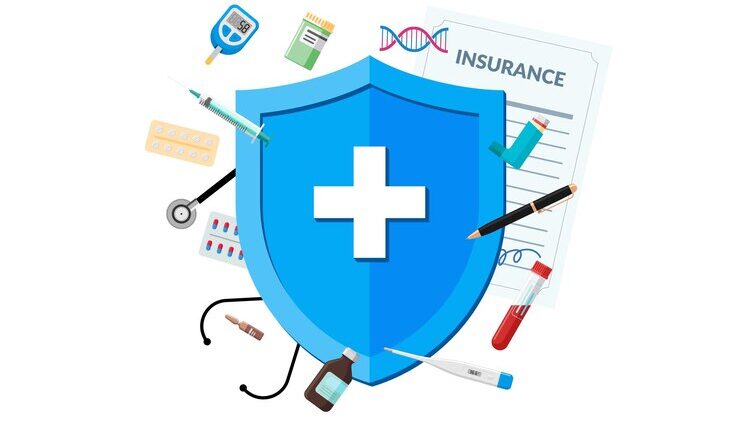Insurance terminology is complicated and difficult to understand. This gets even more complex when you consider how it relates to addiction treatment or mental health coverage. The length and type of coverage vary across treatment providers, plans, and even states. You also have to take into consideration if the facility you want to attend is in-network or out-of-network with your insurance provider. This can be overwhelming, challenging, and downright frustrating.
For people trying to get over substance abuse and mental health issues, it feels like the process of trying to determine your rehab coverage can be triggering. This can’t really be the way the system was designed to work, right?
It really shouldn’t, and it doesn’t need to be so stressful. The best way to avoid the stress is to understand a bit about insurance coverage for rehab and how to go about getting verified. In many cases, it’s actually very easy to get help from others that are well-versed in the industry. You don’t have to figure this all out on your own.
The Affordable Care Act
The Affordable Care Act (ACA) requires insurance companies to provide coverage for behavioral health services, including substance abuse and mental health disorders. These are now considered to be essential health benefits. This law applies to both private insurance providers as well as those purchased through healthcare.gov. Regardless of what you may think, if you have insurance you ARE covered to some extent, it’s the law.
Types of treatments that insurance typically covers:
Psychotherapy: This is also commonly referred to as talk therapy. It’s a broad term that can be used to describe different types of therapy that aim to help people determine underlying causes for behavioral health issues.
Detox: This is the process by which toxic substances are removed from the body and withdrawal symptoms are managed by a treatment provider.
Inpatient treatment: This is when someone stays at a rehab facility 24/7. It’s considered to be the most intensive level of care.
Outpatient treatment: With this type of care, you live at home and go to a facility for treatment during the day or evening.
Partial hospitalization: This is also known as PHP. You live at home but spend most of the day (up to six hours) at a facility getting treatment.
Intensive outpatient program (IOP): This type of care requires you to go to a facility for several hours a day, three to five days per week.
Your specific benefits will depend on your plan, insurance provider, and state.
Pre-Existing Behavioral Health Conditions are Covered
As a part of the ACA, insurance providers are also prohibited from discriminating against people with pre-existing conditions. This means that insurance companies cannot charge you more or deny you coverage because of a previous addiction or mental health diagnosis. It also means that treatment can begin the day your coverage starts.
Protection for Mental Health Services and Substance Abuse Treatment
The Mental Health Parity and Addiction Equity Act of 2008 requires insurance companies to provide the same coverage for mental health and substance abuse disorders as they would for any other medical condition. So, if your insurance plan covers hospitalization, doctor’s visits, and prescription drugs, it must also cover mental health and addiction treatment.
In addition, insurance companies cannot place more restrictions on mental health and addiction benefits than they do on medical/surgical benefits. For example, if there is a limit on the number of outpatient visits covered in a year for general medical care, the same limit must be applied to mental health and addiction services.

How Do I Determine My Coverage?
Each insurance plan is different, so it’s important to know exactly what your insurance will cover. There are a couple of ways you can determine what’s in your policy:
- Contact your insurance company or human resources department at work to find out what kind of coverage you have. If you need help understanding the information you receive, call your insurance company’s customer service number and ask to speak with a behavioral health specialist.
- Contact the admissions department at the treatment facility of your choice. These individuals are well-versed in insurance lingo and will be completely upfront with you about what you can expect in terms of additional expenses. They can also help you determine the help you actually need and will work with you to get your costs covered.
- Do your own research and learn what some of the insurance terms mean in relation to your own policy. This can be a really painstaking process though, and honestly, you don’t need to take this route.
We always recommend choosing the second option and reaching out to the treatment facility. As long as you’re contacting an accredited facility they will break down your policy coverage, give you a solid estimate of any additional costs, and explain why you need the treatment that’s recommended. Also, if they can’t accept your policy they typically know of other facilities that will. This will essentially eliminate a lot of time searching for help.
Example: Blue Cross Blue Shield Coverage for Addiction Treatment
Let’s talk about one such insurance provider and their unique approach to getting the help you need for substance use disorder and other related behavioral health issues. Blue Cross Blue Shield works with a variety of behavioral health facilities with in-network coverage and even as an out-of-network preferred policy. This means that even if the facility is considered “out-of-network” your expenses will still be much lower because you have a Blue Cross Blue Shield policy.
Blue Cross Blue Shield also offers an online resource that they have aptly named their “Substance Use Resource Center” which is designed to help people looking for treatment. You can find a variety of options on their website including information broken down by state, and information regarding different types of addiction treatment services.
BCBS is one of the largest insurance providers in the nation. If you have a choice in coverage, BCBS is highly recommended due to its wide network and amazing resources. If you are covered by BCBS, you can utilize their online resources in conjunction with contacting a treatment facility of your choice for more information. If you aren’t a BCBS policyholder, you can still use their online resources to help you make a more informed decision.
The First Step is Reaching Out
Regardless of how you decide to reach out for help, the most important thing is that you do. Even if you don’t have insurance there are plenty of state and local resources that can provide some support in getting the help you need. You just need to make the first move. If you don’t want to talk to someone on the phone there are even online chat windows available on many websites.
If you do find yourself frustrated or scared, reach out for help from a family member. There are more people in your life than you realize that want you to get the help you need. You don’t have to make this decision alone.
Remember, you’ll have plenty of time to work through all the details as the treatment process unfolds. The best thing you can do right now is to reach out and get informed.
